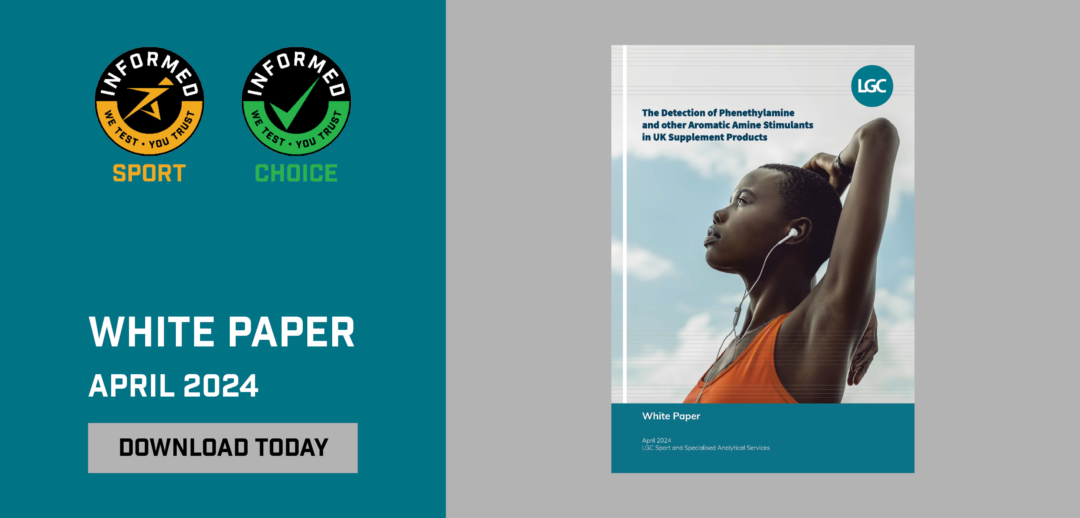
The Detection of Phenethylamine
and other Aromatic Amine Stimulants in UK Supplement Products

This paper summarizes the findings of a study undertaken at LGC to investigate the prevalence of substituted phenethylamines, the link between supplement label versus actual phenethylamine content and the concentrations within these supplements.
Phenethylamine is a naturally occurring amine which acts as a central nervous system stimulant. The chemical shares structural similarities with a range of other compounds, including substituted phenethylamines which contain additional structural groups (e.g. amphetamine).
Substituted phenethylamines are prohibited by the World Anti-Doping Agency (WADA) for use by athletes in competitive sport (Prohibited List 2024, S6B, Specified Stimulants, Phenethylamine and its derivatives5), and the US Food and Drug Administration (FDA) continually assesses botanical ingredients and other additives to products. Therefore, their inclusion within supplement products not only poses a risk to elite athletes subject to doping control, they also pose a risk to health.
For athletes subject to doping control, this study demonstrates the importance of ensuring that the supplements they use have been subject to a rigorous testing program such as Informed Sport or Informed Choice. LGC retains its position as the market leader in this area due to a commitment to the continuous development of intelligence-led testing, combined with ongoing research and development activity.
This PDF was paid for and provided by provided by INFORMED (LGC Science)
Experts in the natural products industry share their insights on top trending topics, research, and industry news and events.
*These statements have not been evaluated by the Food and Drug Administration. These products are not intended to diagnose, treat, cure, or prevent any disease.
The Magazine
Information
About Us
NOTE: WholeFoods Magazine is a business-to-business publication. Information on this site should not be considered medical advice or a way to diagnose or treat any disease or illness. Always seek the advice of a medical professional before making lifestyle changes, including taking a dietary supplement. The opinions expressed by contributors and experts quoted in articles are not necessarily those of the publisher or editors of WholeFoods.







